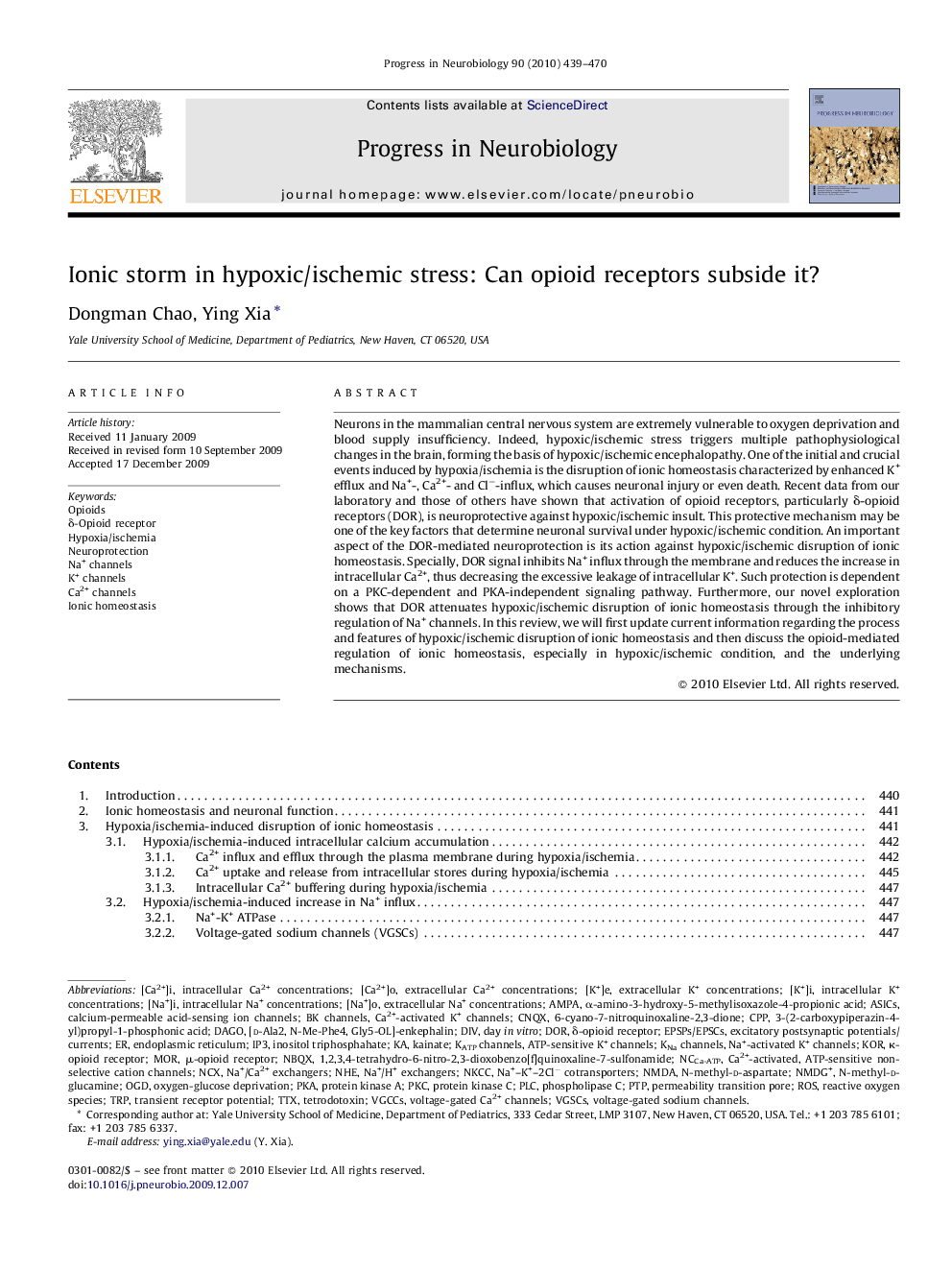| Article ID | Journal | Published Year | Pages | File Type |
|---|---|---|---|---|
| 4353669 | Progress in Neurobiology | 2010 | 32 Pages |
Abstract
Neurons in the mammalian central nervous system are extremely vulnerable to oxygen deprivation and blood supply insufficiency. Indeed, hypoxic/ischemic stress triggers multiple pathophysiological changes in the brain, forming the basis of hypoxic/ischemic encephalopathy. One of the initial and crucial events induced by hypoxia/ischemia is the disruption of ionic homeostasis characterized by enhanced K+ efflux and Na+-, Ca2+- and Clâ-influx, which causes neuronal injury or even death. Recent data from our laboratory and those of others have shown that activation of opioid receptors, particularly δ-opioid receptors (DOR), is neuroprotective against hypoxic/ischemic insult. This protective mechanism may be one of the key factors that determine neuronal survival under hypoxic/ischemic condition. An important aspect of the DOR-mediated neuroprotection is its action against hypoxic/ischemic disruption of ionic homeostasis. Specially, DOR signal inhibits Na+ influx through the membrane and reduces the increase in intracellular Ca2+, thus decreasing the excessive leakage of intracellular K+. Such protection is dependent on a PKC-dependent and PKA-independent signaling pathway. Furthermore, our novel exploration shows that DOR attenuates hypoxic/ischemic disruption of ionic homeostasis through the inhibitory regulation of Na+ channels. In this review, we will first update current information regarding the process and features of hypoxic/ischemic disruption of ionic homeostasis and then discuss the opioid-mediated regulation of ionic homeostasis, especially in hypoxic/ischemic condition, and the underlying mechanisms.
Keywords
[Na+]oNMDAN-methyl-d-aspartateNa+/Ca2+ exchangers[K+]iPLCNHEN-methyl-d-glucamineNCXintracellular Ca2+ concentrationsPKCVGSCsα-amino-3-hydroxy-5-methylisoxazole-4-propionic acid[D-Ala2, N-Me-Phe4, Gly5-ol]-enkephalinVGCCsNKCCASICsNBQXOGDCPPTrpMOR[K+]eNa+/H+ exchangersPTPAMPApKaTTXIP3NMDG+6-Cyano-7-nitroquinoxaline-2,3-dioneK+ channelsROS[Ca2+]i[Ca2+]o[Na+]iδ-Opioid receptorμ-Opioid receptorPermeability transition poreOpioidstetrodotoxinDAGODORDIVday in vitroCNQXendoplasmic reticulumphospholipase CNeuroprotectionOxygen-glucose deprivationIonic homeostasishypoxia/ischemiaKORtransient receptor potentialprotein kinase AProtein kinase CBK channelsCa2+ channelsvoltage-gated Ca2+ channelsATP-sensitive K+ channelsCa2+-activated K+ channelsKATP channelsvoltage-gated sodium channelsNa+ channelsKainateReactive oxygen speciesκ-opioid receptor
Related Topics
Life Sciences
Neuroscience
Neuroscience (General)
Authors
Dongman Chao, Ying Xia,
